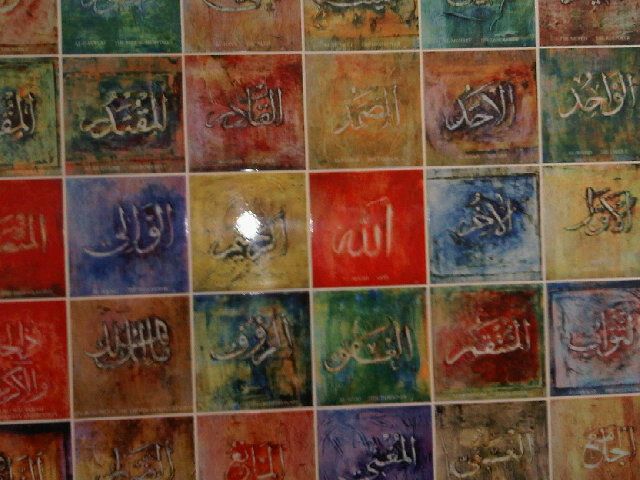
They considered the move a risk. If their move from Saudi Arabia to the United States didn’t work out, they would be ready to move on.
But for Pakistani-born Mohammed Ahmed Ullah and his family, the U.S. has become their new home. Their plans to move on were scuttled not long after arriving in the U.S. six years. and home.
On a busy Friday afternoon, Muhammad Ahmad Ullah, office manager for the Downtown Islamic Center of Chicago (DIC), set aside some time to talk about his new home, his faith, and how, in his opinion, NATO has impacted Muslim and third-world nations.
He is deeply proud of the positive role that Islam plays for the lives of its followers, especially immigrants like himself in the U.S.
“Let me give you a statistic that will really shock you,” said Ullah. “Did you know roughly 17 percent of American’s students graduate from high school and go into college? Yet, those raised in Muslim communities have 35 percent of students graduating and going into colleges.”
He believes that there is a coherent method of raising a child in the Muslim community that increases the child’s success and knowledge, unlike other religious communities.
“Take for instance how many Muslim doctors we have here in America, even in Chicago. Most of the highest paying medical workers are Muslims. Why is that,” Ullah asks, “because we have raised them in a pure and stable community of faith.”
He had nothing but praise for his own son who has “achieved straight A’s all through college. Not even one B,” Ullah said. His son will be a senior at Loyola University in Chicago studying to be a doctor.
As a manager of the Islamic center, Ullah sees 800-to-1200 Muslims coming through his doors to learn, pray, and hear the words of Islam. DIC is one of the largest mosques in Illinois and religious based.
He is a engineer, who was laid off and found work at the mosque. Yet despite the financial loss he has suffered with his new job, he has no regrets, he said.
With the NATO Summit underway in Chicago, the issues in the Middle East have been a topic Ullah has been trying to avoid. Indeed, he said he offering his own views, not those of the mosque.
“I feel that NATO goes to any country in the name of democracy,” Ullah said, adding that he questioned whether that is the organization’s sole purpose. “I feel all third world countries feel this way when NATO is at their door steps.”
He noted how NATO goes to nations that do not have democracy and try to enforce it; however, one nation that does not have democracy is one of the largest allies of NATO and is the most corrupt and violent.
“Look at Saudi Arabia. They are one of the closest allies to NATO, yet they have no democracy, they are a Monarchy. They have a King that inflicts extremely strict Muslim laws under their government,” Ullah said.
He considered the impact of NATO’s military actions in Iraq and Afghanistan and wondered out loud about the lasting impact has been on these nations.
“What was Iraq before the invasion and what was Iraq after the invasion? Does anyone even know? Iraq is now ruined. Can anyone even say they are better off now,” Ullah asks.
Many people, even Americans, he says, had jobs in Iraq. There were businesses and companies where people had employment. “Now look,” he says, “They are starving, there is chaos in the streets, and NATO has up and left them with worse than what they had.”
“When it comes to the Iraq war, [America] lost trillions of dollars, lost millions of soldiers, your people are unemployed, and now you have gained enemies.”
There are over 80,000 Muslims-American military soldiers fighting in Iraq and Afghanistan, he said. And Ullah’s brother serves in the air force and has been deployed to Iraq, he added.
Saying many Muslims do not believe in the war in Iraq or Afghanistan, Ullah added, “In any Muslim country we must follow any laws of the land. I must love this home, honor this home, and care for this home. And that includes fighting for this home.”
The Islamic Center also encourages members to go out and protest this weekend at the NATO Summit if it is positively done so and without violence. Ullah believes that if the community wants to voice their opinions on the actions of the NATO Summit officials they have every right to in order to make some type of change for the society.
“[We] have to work to better the society that we love and call home,” Ullah said.
(Edited by Stephen Franklin – original submission Saturday, May 19, 2012, 01:45 AM)













Be First to Comment